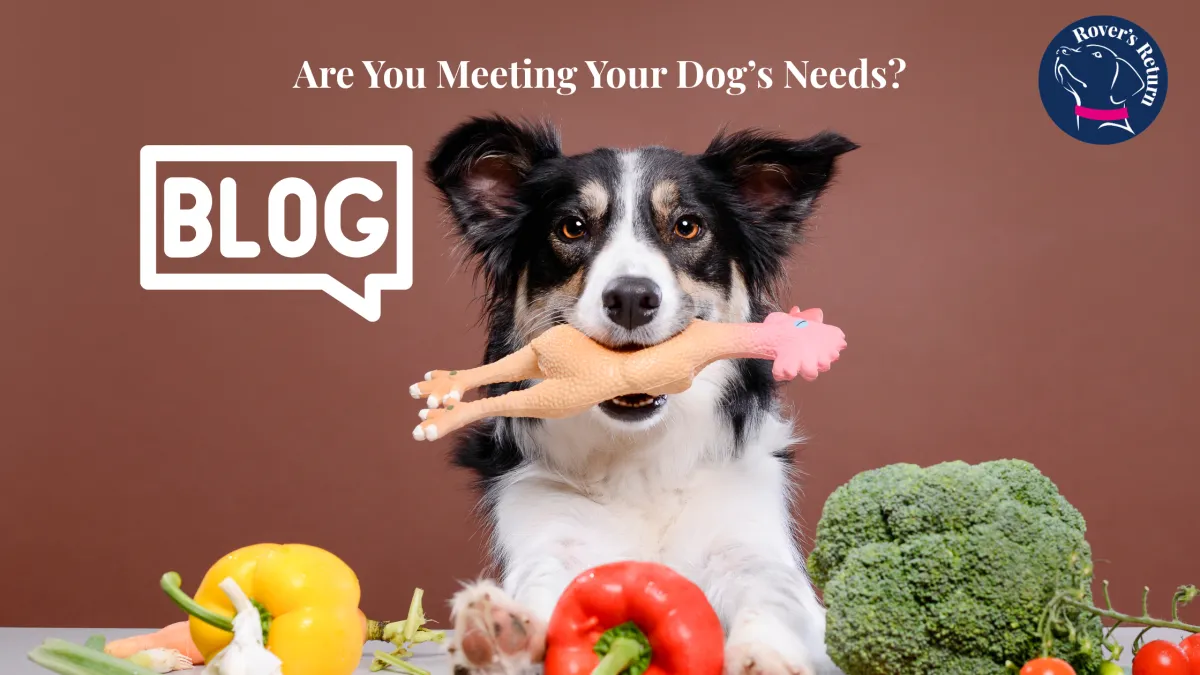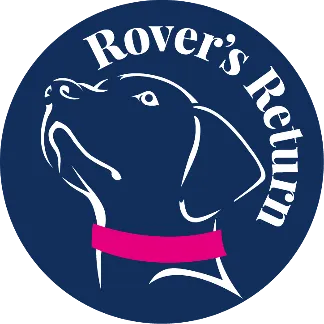Book a FREE 1:1 Assessment Call By Clicking HERE
Specialising In Dog Reactive Behviour
Accredited by APDT, ABTC and UK DOG Behaviour and Training Charter
Qualified and Experienced
Force Free Trainer and Behaviourist
Dog Training Leicestershire Educational Blogs

Beyond Good Boy, Understanding the Hierachy of Dog's Needs

Beyond "Good Boy": Understanding the Hierarchy of Dog Needs
Are you meeting your dog basic & biological needs?

We all want happy, healthy dogs. We shower them with love, provide good food, and take them for walks. But what if we told you there's a more structured way to think about your dog's well-being, one that goes beyond the basics and delves into their deepest psychological and physical requirements?
Just like Maslow's hierarchy for humans, dogs also have a pyramid of needs, where foundational requirements must be met before higher-level ones can be truly addressed. Understanding this hierarchy can transform your relationship with your canine companion, leading to a more fulfilled and balanced life for them – and for you!
Let's break down the hierarchy of dog needs, from the essential base to the pinnacle of canine contentment:
Every pet deserves to have their basic needs met, the following information is a guide to ensure that your dog is happy & healthy!
Level 1: Physiological Needs (The Foundation)
This is the absolute bedrock. Without these, nothing else matters.
Clean Water: Always available, fresh, and accessible. Dehydration is a serious threat.
Nutritious Food: A high-quality diet appropriate for their age, breed, and activity level. This isn't just about filling their belly; it's about providing the fuel for a healthy body and mind. Be aware of what is in your dogs' food. It should have a specified protein source, (not meal or derivatives), no artificial colours, and preservatives such as BHA & BHT. Expensive foods do not mean that the food contains the right ingredients.
Safe Shelter: Protection from the elements, a comfortable place to rest, and a sense of security. This could be a crate, a dog bed, or their own designated space within your home.
Appropriate Exercise: Regular physical activity tailored to their breed and energy levels. This isn't just for burning off steam; it's crucial for their physical health, muscle development, and mental stimulation. However, you should still avoid walking in the hot sun and excessive exercise.
Proper Veterinary Care: Regular check-ups, vaccinations, parasite control, and prompt attention to any health concerns. Prevention is always better than cure. I don’t vaccinate my dogs now that they are older, you can choose to test their immunity and not vaccine annually.
Level 2: Safety & Security Needs (Predictability & Protection)
Once the basics are covered, dogs need to feel safe and secure in their environment.
Safe Environment: Protection from hazards (toxic substances, dangerous objects), and a secure perimeter (fenced yard, leashed walks). Be aware of toxic plants in your garden and the foods that can poison your dog.
Consistent Guidance: Leadership isn’t telling your dog what to do, it is not dominance, but clear, consistent boundaries and expectations from their human, to avoid confusion. This provides structure and helps them understand what you want from your dog. For example, you cannot let them on your bed one day and then tell them off for it the next day. Be consistent in what they can and can’t do.
Freedom from Fear/Anxiety: Avoiding harsh punishment, loud noises that cause distress, and unpredictable or threatening interactions with other animals or people.
Identification: A collar with tags and microchipping for their safety if they ever get lost. This is the law in the UK. They need an identity tag & microchip.
Level 3: Love & Belonging Needs (Connection & Affection)
Dogs are social animals and crave connection with their human families.
Affection & Attention: Petting, cuddles, belly rubs, and quality time spent together. This strengthens your bond and communicates your love.
Inclusion in the Family: Being part of daily activities, not just an outdoor accessory. This makes them feel like a valued member of the family.
Positive Social Interaction: Opportunities to safely interact with other friendly dogs and people. This helps them develop good social skills.
Play: Engaging in interactive play with you, whether it's fetch, tug-of-war, or hide-and-seek. Play is crucial for bonding and mental stimulation.
Level 4: Esteem Needs (Confidence & Purpose)
Just like humans, dogs benefit from feeling competent and having a purpose.
Mental Stimulation/Enrichment: Puzzle toys, training sessions, scent work, and new experiences keep their minds active and prevent boredom, which can lead to destructive behaviours.
Training & Learning: Learning new commands and tricks builds confidence and strengthens the human-dog bond. Positive reinforcement methods are key here.
Sense of Accomplishment: Praise and rewards for good behaviour and successful completion of tasks. This reinforces desired actions and builds their self-esteem.
Respectful Handling: Gentle handling, avoiding force or intimidation. This fosters trust and a sense of being valued.
Level 5: Self-Actualization (Fulfilment & Thriving)
This is the pinnacle – when a dog is truly thriving and reaching their full potential. This level looks different for every dog, depending on their breed, personality, and natural inclinations.
Opportunity to Express Natural Behaviours: Allowing a retriever to retrieve, a herding dog to engage in herding activities (even if it's just playing "find the treat"), or a scent hound to follow a trail.
Choice & Autonomy (within safe limits): Offering choices, like which toy to play with, or where to rest, gives them a sense of control and independence.
Joy & Contentment: A dog that is self-actualized is generally happy, relaxed, playful, and engaged with their world. They are confident and resilient.
Purposeful Activities: Participating in dog sports, therapy work, or simply having a "job" (like being a good companion) can provide immense fulfilment.
Why Does This Hierarchy Matter?
Understanding this hierarchy allows us to:
Prioritize Care: Address the foundational needs first. You can't expect a dog to focus on training if they're hungry or scared.
Identify Root Causes of Behaviour Issues: Many behaviour problems stem from unmet needs lower down the pyramid. A destructive dog might be bored (lacking mental stimulation) or anxious (lacking security).
Build a Stronger Bond: By consistently meeting your dog's needs at every level, you build trust, respect, and a deeper connection.
Create a More Harmonious Home: A fulfilled dog is typically a well-behaved and happy dog, making for a more peaceful living environment for everyone.
So, take a moment to assess where your dog stands on this hierarchy. Are their basic needs fully met? Do they feel safe and loved? Are they stimulated and confident? By consciously working through each level, you're not just providing for your dog; you're truly helping them flourish into the best version of themselves. And isn't that what every good dog parent truly wants?

Highly Qualified Behaviourist
Accredited by APDT, ABTC and UK DOG Behaviour and Training Charter
Accredited Scentwork Instructor
Force Free Trainer and Behaviour
Force Free Trainer and Behaviour
Accredited Scentwork Instructor
Accredited by APDT, ABTC and UK DOG Behaviour and Training Charter
Highly Qualified Behaviourist
Contact Us
Sam: 07725 802995
You can contact us via Live Chat button at the bottom of the screen or the contact box to the right.
You can also book one of our services online using the View Dates buttons under the service you require.
© 2023 by Rovers Return Dog Trainers Academy - Force Free Dog Training Lutterworth, Broughton Astley, Leicestershire, Hinckley, Nuneaton, Stoney Stanton, South Kilworth, Ullesthorpe
Privacy Policy | Terms and Conditions | Terms and Conditions of Services | Sitemap

Facebook
Instagram
X
LinkedIn
Youtube
TikTok